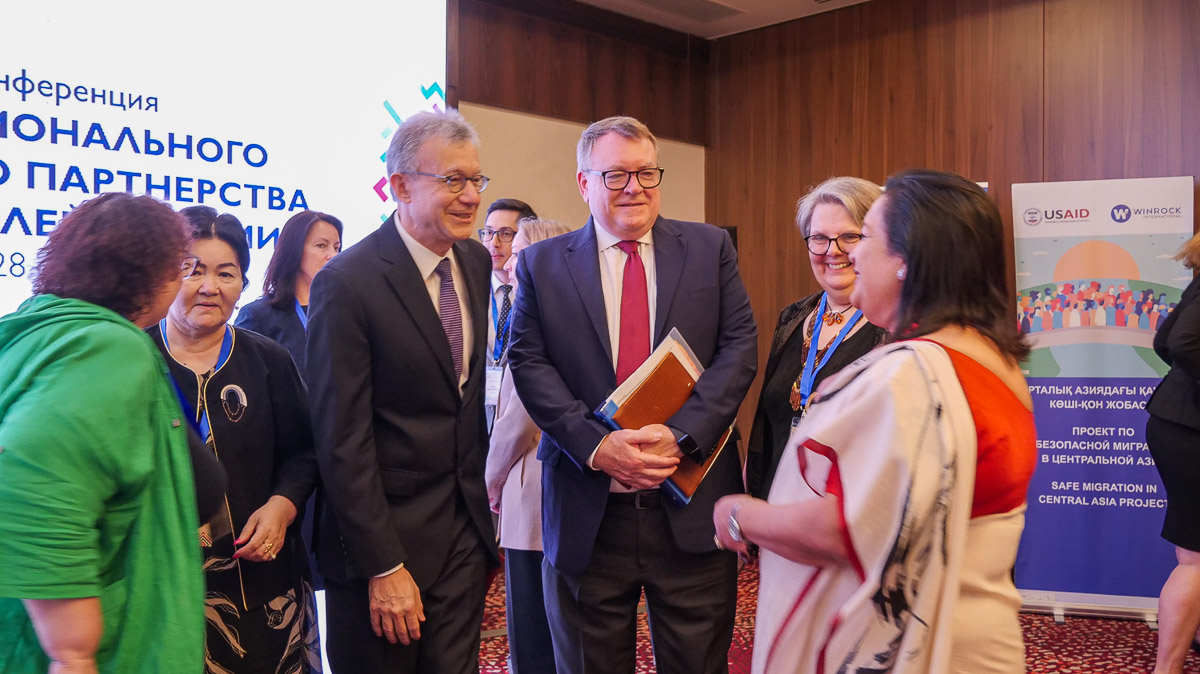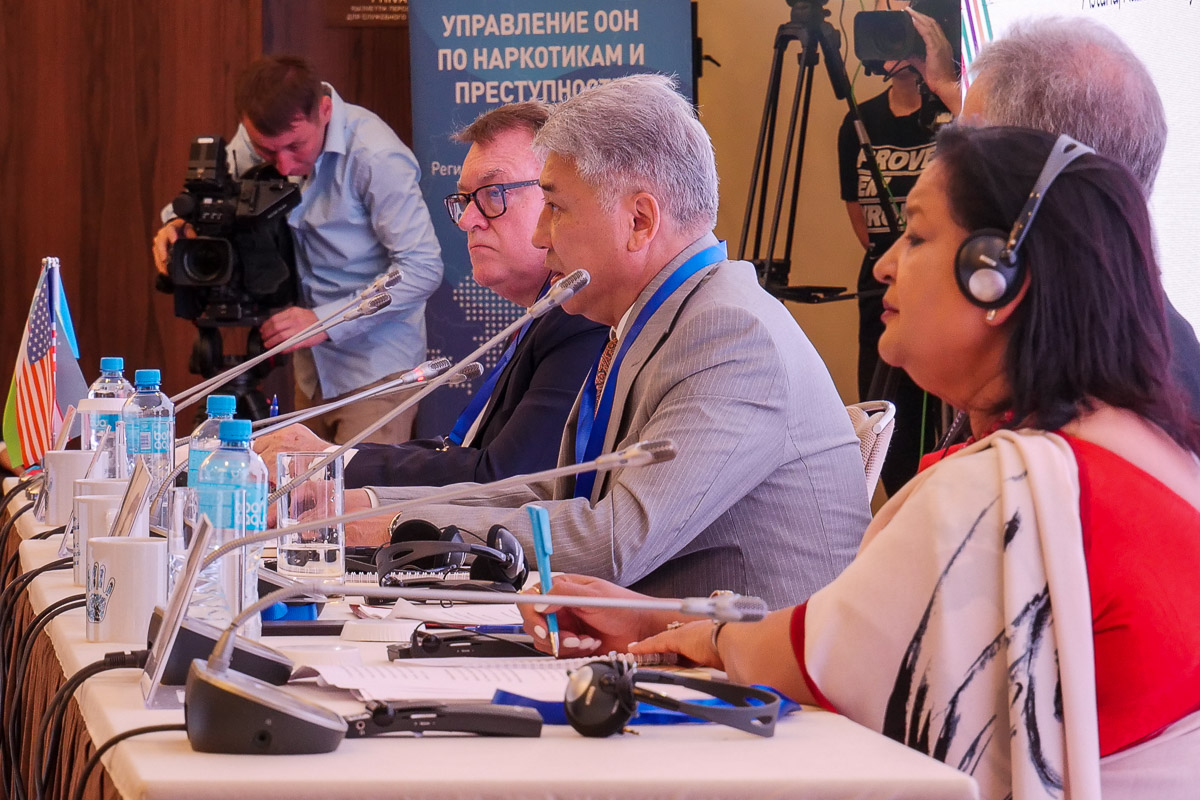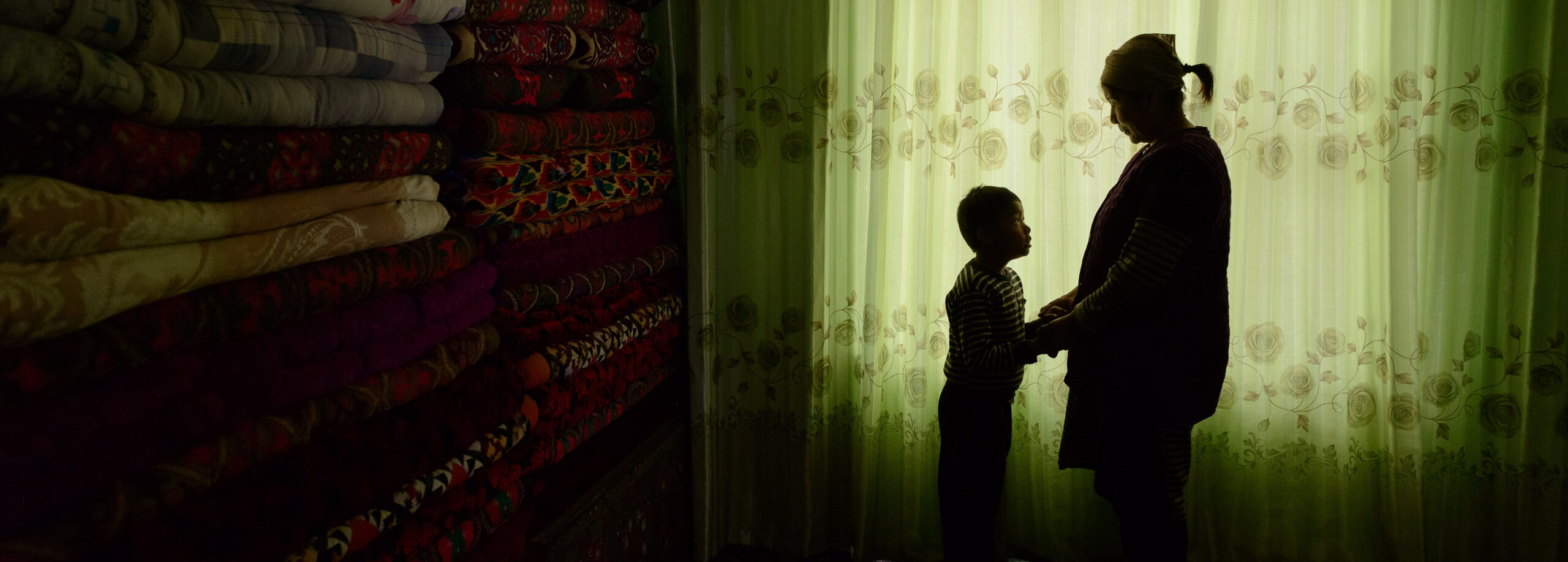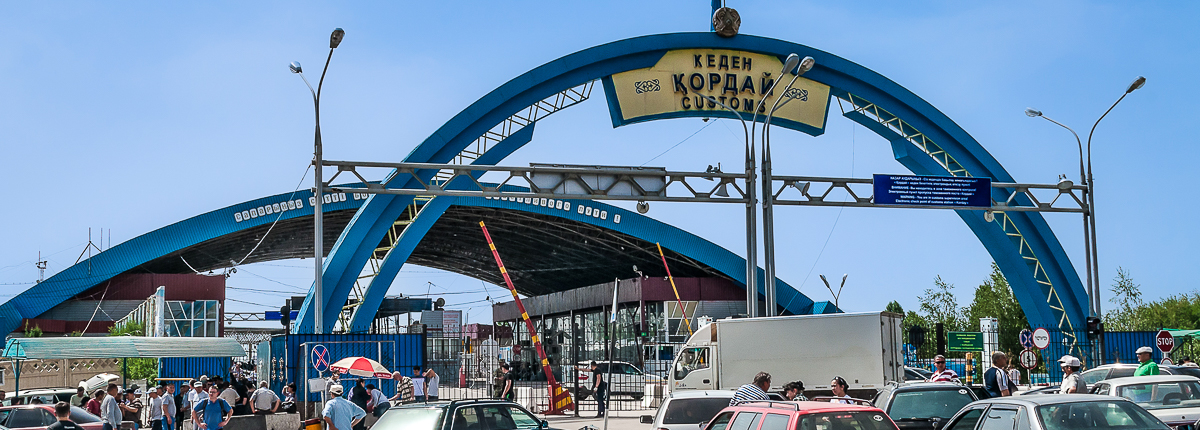
Central Asian governments boost efforts to combat trafficking in persons
Just before World Day Against Trafficking in Persons 2023, representatives of Central Asian governments and civil society partners gathered at a conference in Astana, Kazakhstan, to share their experiences, knowledge and successes combating trafficking in persons. Winrock President and CEO Rodney Ferguson joined a panel to discuss Winrock-implemented counter-trafficking projects in the region, including the USAID-funded Safe Migration in Central Asia activity and the U.S. Department of State-funded Kazakhstan Actions Against Trafficking in Children project.
The conference, “Strengthening National and International Partnerships to Combat Trafficking in Persons,” was co-organized by SMICA, the Law Enforcement Academy under the Office of the Prosecutor General of Kazakhstan, the United Nations Office on Drugs and Crime, and the USDOS Bureau of International Narcotics and Law Enforcement Affairs.
The conference convened officials from Kazakhstan, Kyrgyzstan, Tajikistan, Turkmenistan and Uzbekistan and included representatives from law enforcement agencies, judiciaries, customs and border control and civil society organizations, along with international experts. Participants shared best practices in combating TIP, with special focus on victim-centered rehabilitation and reintegration of victims of trafficking and exploitation. The theme of WDATIP 2023 was “Reach Every Victim of Trafficking: Leave No One Behind.”

U.S. Ambassador to Kazakhstan Daniel Rosenblum opened the conference, emphasizing the need for collaboration between all partners as no single organization can significantly impact trafficking. The conference also helped to consolidate the network between CSOs working on TIP prevention and state agencies in Central Asia, and strengthened the understanding that a multilateral, intergovernmental approach is critical to combat trafficking in Central Asia or elsewhere in the world.
Representatives of law enforcement agencies presented an overview of TIP criminal cases, including crime statistics related to investigations and prosecutions. They also shared challenges and best practices investigating and prosecuting TIP and related cases.
Participants reviewed the range of TIP-related support provided by international organizations to governments in the region. Those include assistance drafting and revising action plans; legislative support; community awareness; data collection and research; strategic planning and policy development; criminal justice responses; victim protection and support; international cooperation; and training and mentoring on the use of tools to apprehend, prosecute and convict traffickers.
Central Asian governments have committed to suppressing TIP by adopting comprehensive strategies, improving regulatory frameworks, and strengthening the capacity of law enforcement to deal with TIP cases. Given the complex nature of TIP and changing methods of criminal networks, the conference stressed the need to further develop the criminal justice response to TIP in the region, especially the detection and investigation of international TIP crimes and victim referrals.
Winrock has worked with government and community-based partners in Kazakhstan, Kyrgyzstan, Turkmenistan and Uzbekistan on CTIP and safe migration under the five-year SMICA project, an associate award under USAID Asia CTIP, implemented by Winrock. In all, Winrock currently implements 12 CTIP projects around the world aimed at improving access to survivor-centered services, addressing key drivers of TIP and strengthening the prevention and response capacity of CTIP actors and systems. In Central Asia, the SMICA activity promotes transnational referrals of trafficking victims between Uzbekistan, Kazakhstan and Kyrgyzstan, with the goal of improving data collection and exchange of information to better support TIP survivors.
In Kyrgyzstan, the migrant.kg website, supported by SMICA and administered by the Center for Citizen Employment Abroad, is now a reliable and multifaceted resource for potential labor migrants. Similarly, in Uzbekistan, Winrock initiated the Salom_Migrant_Bot application in cooperation with the Uzbek Sub-Commission on CTIP. The mobile app serves as a virtual consultant on migration and trafficking, helping migrants gain a better understanding of their rights and obligations when seeking employment abroad. These information resource services are made available both online and through mobile applications, and are promoted at kiosks in international airports, helping to increase awareness of migrants before they go abroad to work, while also providing information on services and referral resources available in their destination countries.

Speaking at the conference, Winrock’s Rodney Ferguson said: “SMICA also plays a crucial role in facilitating the identification of trafficking victims and ensuring their safe repatriation. In the past four years, in partnership with local organizations, nearly 9,250 victims of trafficking, returning migrants, potential migrants and migrants’ families have received comprehensive support, including legal, psychosocial and economic assistance to aid them in their reintegration into their communities.” He added: “Together with the Law Enforcement Academy of the Prosecutor General’s Office of Kazakhstan and other government partners, SMICA issued comprehensive guidelines for frontline officers for the identification and protection of victims of trafficking. Similar standard operating procedures for the implementation of a national referral mechanism have been developed with Uzbek, Turkmen and Kyrgyz partners.”
Partnerships must include the voices of those with lived experiences, said Rosenblum, the U.S. ambassador. Conference participants also heard from Fakhriddin, a trafficking survivor, who is now a consultant with the Uzbek nongovernmental organization “Istiqlol Avlodi.” Fakhriddin was rescued from slavery in Russia. He had been a professional goalkeeper at different soccer clubs in Central Asia, but under new management his last soccer club terminated his contract, forcing him to look for other job opportunities abroad. He traveled to Russia with the promise of a well-paid job, only to learn later that he had been sold into slavery. After a year-long ordeal, he returned home to Uzbekistan, underwent rehabilitation, started a custom-made furniture business, and now consults with the NGO on TIP issues. Most importantly, he has received his certification to open a goal-keeping school for youth in his hometown.
Capturing the attention of all in the room, Fakhriddin shared: “Yes, certainly I feel resentment for what happened to me. At the same, I feel grateful to fate that I survived and returned home, and I am a businessman now. People who desperately need money and need to make a living are especially vulnerable to human traffickers. That is why informing and warning people about risks of trafficking in persons in labor migration is crucial.”
To better address issues of CTIP and safe migration, NGOs and government agency representatives at the conference agreed to renew their commitment to strengthen national and transnational referral mechanisms to facilitate identification of trafficking victims, assist with repatriation and other services, and to investigate and prosecute those responsible for TIP crimes. This commitment involves partnerships across criminal justice practitioners and CSOs in Central Asia to exchange and develop national practices for combating TIP crimes both within and across state borders.
Related Projects

Safe Migration in Central Asia
Rising poverty and unemployment in Central Asia has increasingly led laborers in the region to migrate in search of work. Unfortunately, migration often leaves workers vulnerable to exploitation. The five-year Safe Migration in Central Asia activity aims to strengthen the mutual accountability of governments, NGOs and the private sector in efforts to prevent trafficking in…
USAID Asia Counter Trafficking in Persons (CTIP)
Complex problems require transcendent solutions, ones that span borders and sectors. Human trafficking is such a problem, and the USAID Asia Counter Trafficking in Persons program (USAID Asia CTIP) is such a solution. USAID Asia CTIP is a regional activity that focuses on transnational and regional challenges to combat human trafficking. The program aims to…
